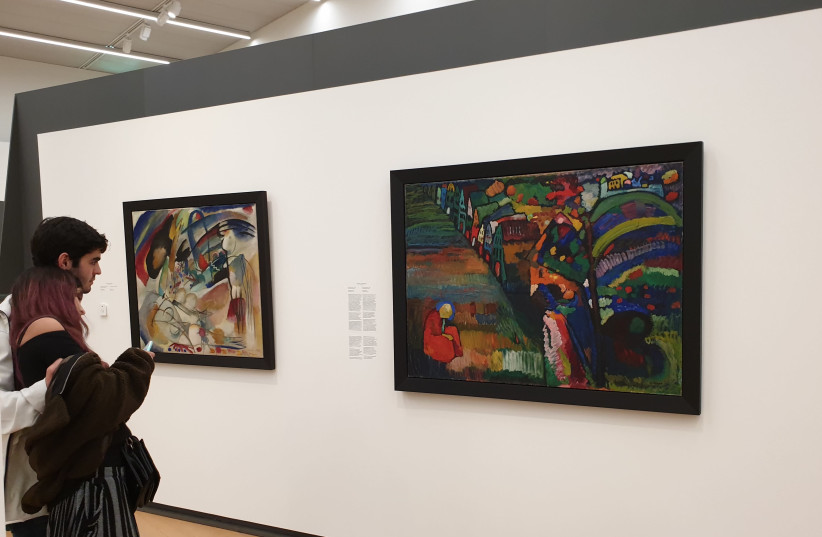
AMSTERDAM — In the Netherlands, proving that the Nazis stole artwork from your family isn’t always enough to claim it back.
Departing from norms across Europe, the kingdom’s policy is to weigh the interest of established heirs of looted art against those of the museums that hold them. In some cases the government has ruled in favor of museums, concluding that Jews should not get back the purloined art.
The Dutch policy has faced legal fights and international pressure. Now a government commission charged with evaluating the country’s record on the restitution of stolen art is adding to the criticism.
The commission, led by a former lawmaker named Jacob Kohnstamm, released its final report on Monday, a week before a ruling is expected in an Amsterdam court over a Dutch museum’s bid to keep a stolen Wassily Kandinsky valued at $22 million.
The 86-page report, titled “Striving toward Justice,” concludes that the Netherlands was an early leader in addressing the issue of stolen art, but “its reputation in recent years has been damaged by a limited number of refusals.”
It marks the first time that the Dutch government has openly criticized the Dutch Restitutions Committee, an advisory body whose establishment by the government in 2002 helped make Holland a pioneer in art restitution. The committee’s chairman resigned without explanation last week.
cnxps.cmd.push(function () { cnxps({ playerId: ’36af7c51-0caf-4741-9824-2c941fc6c17b’ }).render(‘4c4d856e0e6f4e3d808bbc1715e132f6’); });
if(window.location.pathname.indexOf(“647856”) != -1) {console.log(“hedva connatix”);document.getElementsByClassName(“divConnatix”)[0].style.display =”none”;}
The Kandinsky refusal is by far the best known case. In 2013, the committee ruled that the Stedelijk Museum need not return his “Painting with Houses” even though it was stolen from the family of a Holocaust survivor named Irma Klein.
The committee cited “public interest” in keeping the work on display at the Stedelijk, among other arguments, and said nothing about offering Klein’s family restitution instead of the painting. The painting “has a significant place in the Stedelijk Museum’s collection,” the committee wrote.
The Süddeutsche Zeitung daily in Germany ridiculed the committee’s argument, summarizing its conclusion to mean “Too pretty to give back.” The family has sued and a ruling is expected on Dec. 16.
Kohnstamm believes the court should rule against the museum.
“When you have a rightful owner, you have to offer restitution,” he told a Dutch newspaper this week.
The Kohnstamm report listed several additional problems with the Dutch restitution policy, including the failure to perform “structural provenance research” as required in the Washington Principles on Nazi-Confiscated Art – a landmark document agreed upon in 1998 by 44 countries, including the Netherlands.
The report said the restitution process is not transparent enough, “too formalistic” and experienced by claimants as “not sensitive enough” given their emotional involvement.
The Dutch Restitution Committee’s chairman since 2016, Alfred Hammerstein, resigned last week. He declined to say why he was stepping down.
Over the past 18 years, the Dutch Restitutions Committee has made 163 rulings on individual claims, fully approving 79 of them, or 48%. Another 19 claims were partially upheld and 39% were rejected.
The report said that claimants experience the committee’s work as “slow.”
In a statement, the Central Jewish Board of the Netherlands welcomed the Kohnstamm report, saying that its suggested approach is “simpler, more sensitive and just” than the one taken by the Dutch Restitution Committee.
Related posts:
Holocaust scholars sued for suggesting mayor who saved Jew helped kill 22
Watching The Hawks – Women in Film, the Hospital, and the Government
Medicine and Morality: COVID-19 & the Holocaust
Brazilian minister, Petrobras exec urged 'change' in govt weeks before Rousseff suspension – report
U.K. government says vaccinated are dying at a rate 286% higher than unvaccinated
The case for nationalism, by the Israeli credited with shaping Trump's foreign policy
Views: 0
 RSS Feed
RSS Feed

















 December 9th, 2020
December 9th, 2020  Awake Goy
Awake Goy  Posted in
Posted in  Tags:
Tags: 
















